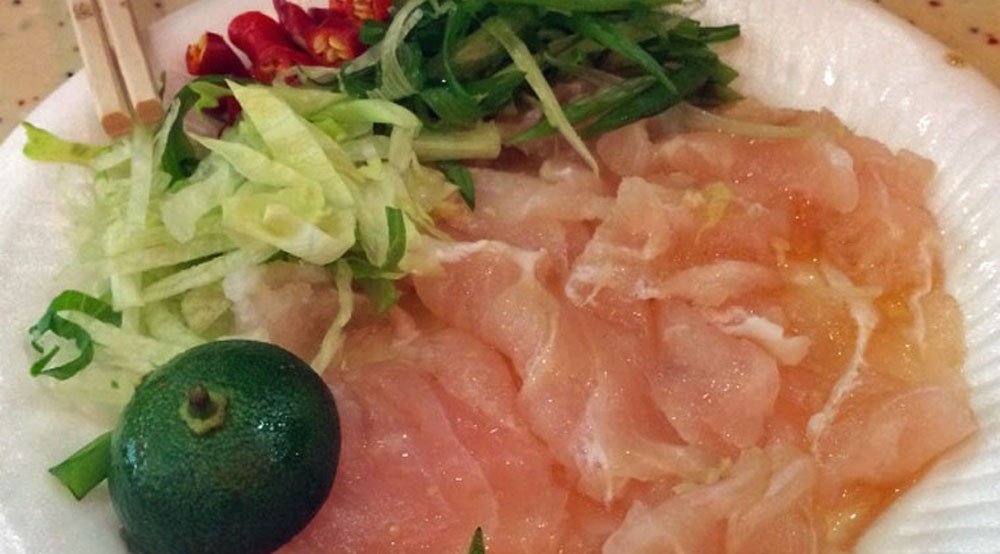The use of freshwater fish in all ready-to-eat raw fish dishes has been banned with immediate effect.
The announcement was made by the Ministry of Health (MOH), National Environment Agency (NEA) and the Agri-Veterinary Authority of Singapore (AVA) on Saturday, Dec. 5.
Tests by AVA and NEA showed that freshwater fish are likely to present higher risks of infection when consumed raw, as they have significantly higher bacterial contamination than saltwater fish.
All retail food establishments are to use only saltwater fish intended for raw consumption to replace freshwater fish in all ready-to-eat raw fish dishes.
What should the public take note of
NEA said most fish sold at Singapore's wet markets, fresh produce section of supermarkets and fishery ports do not meet the appropriate cold chain management practices and should not be eaten raw.
On the other hand, consuming ready-to-eat raw saltwater fish dishes is relatively safer in restaurants as restaurant operators "generally observe proper cold chain and food handling management in their food preparation, and the fish used in their ready-to-eat raw fish dishes is also typically sourced from suppliers of fish intended for raw consumption."
NEA's surveillance data has also indicated that ready-to-eat raw fish sampled from restaurants have low levels of overall bacterial contamination.
Saltwater fish that are intended for raw consumption are usually bred or harvested from cleaner waters. They are also stored and distributed according to appropriate cold chain management practices.
MOH, AVA and NEA said the ban is in place to "give greater peace of mind" to the public, ahead of Chinese New Year.
And this comes after a spate of Group B Streptococcus (GBS) infections reported since June, where the consumption of yusheng with congee caused some patients to fall ill.
In the first half of the year, the number of GBS cases at hospitals rose from an average of 150 a year in the past four years to 238 a year.
In July, the NEA advised stallholders to temporarily stop selling raw fish dishes using Song and Toman fish after some samples of raw fish were found to contain GBS bacteria.
An advisory for the sale and consumption of raw fish dishes after further investigations into the increase of infections was also issued by NEA on Nov. 27.
[related_story]
Related article:
Top photo via
If you like what you read, follow us on Facebook, Instagram, Twitter and Telegram to get the latest updates.
